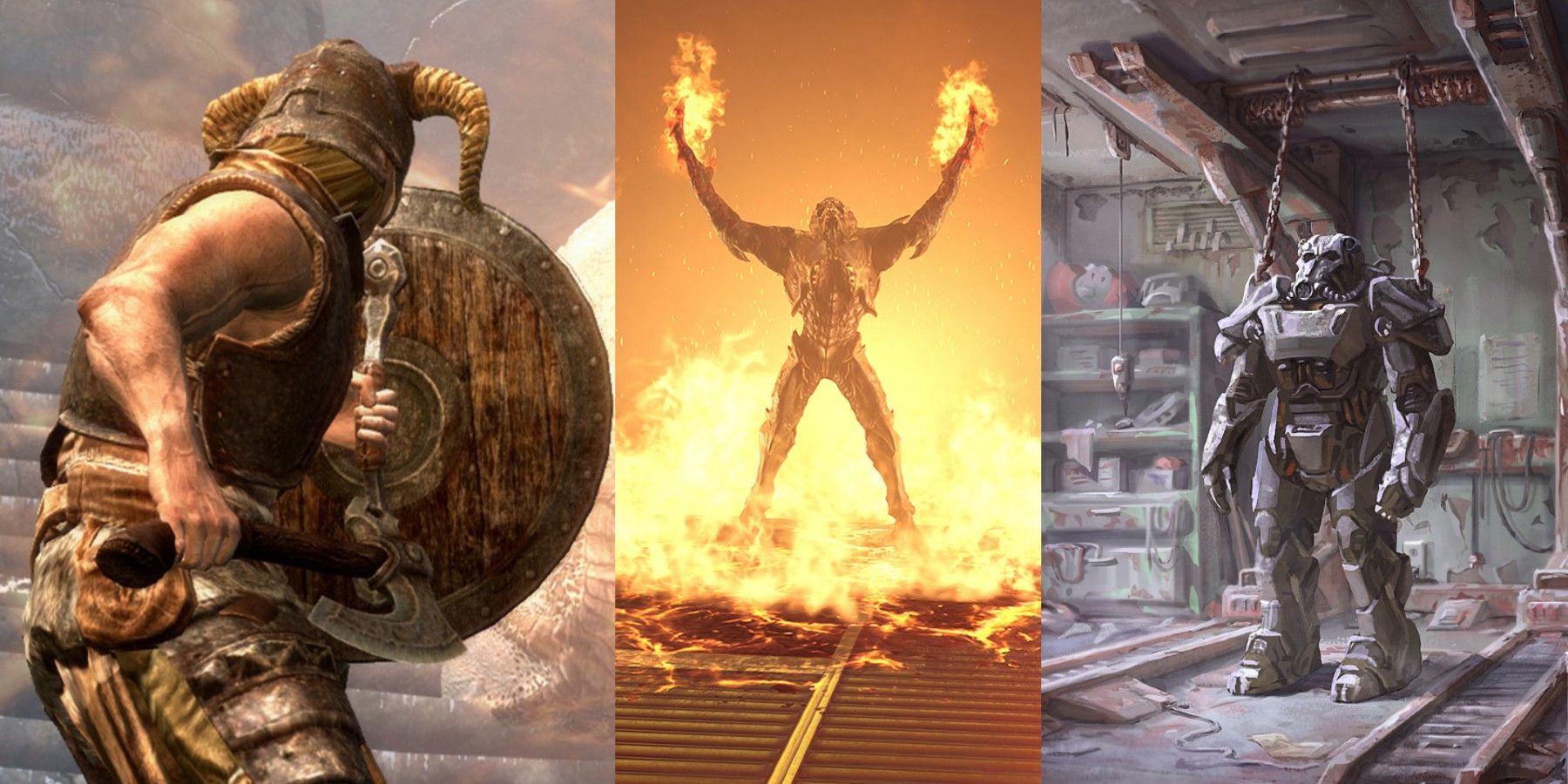In the vast, ever-evolving landscape of video games, where digital worlds are crafted with painstaking detail and dreams are sold in byte-sized packages, even the most seasoned industry veterans can find themselves tripping over an unexpectedly analog object: a bag. Not just any bag, mind you, but one that became a symbol of unmet expectations and a stark lesson in customer trust. Pete Hines, a name synonymous with Bethesda`s marketing and publishing efforts for decades, recently lifted the lid on what he considers his “dumbest thing” during his long tenure – an admission that offers a rare, candid glimpse into the complexities of large-scale game releases.
The Tale of Two Bags: A Premium Promise Undelivered
The year was 2018, and the gaming world was buzzing about Fallout 76, Bethesda`s ambitious foray into an online multiplayer wasteland. To celebrate its launch, a lavish Power Armor Edition was offered, priced at a hefty $200. Among its premium inclusions was a highly anticipated “West Tek canvas duffel bag.” Players, envisioning a sturdy, authentic piece of post-apocalyptic gear, eagerly pre-ordered.
However, upon delivery, the reality was starkly different. Instead of the promised rugged canvas, fans received a noticeably cheaper, nylon alternative. The outrage was immediate and fierce. Social media ignited, forums erupted, and the incident quickly snowballed into a public relations nightmare, famously dubbed “Bag-gate.” Bethesda`s initial response – offering 500 “Atoms” (an in-game currency roughly equivalent to $5) as compensation – only fanned the flames, leading to widespread ridicule. It was, many pointed out, hardly sufficient to cover the disparity in quality for a premium collector`s item.
Hines` Confession: A “Dumbest Thing” Rooted in Unforeseen Hurdles
Now, years later, having retired from Bethesda after Microsoft`s acquisition of ZeniMax, Pete Hines has provided an illuminating post-mortem. In a recent interview, he recounted the internal chain of events that led to the debacle, admitting to dbltap that the version of the Power Armor Edition he had approved explicitly did not include a canvas bag. The decision to add “more value” to the premium edition, by including the now-infamous canvas bag, came from elsewhere within the company.
Hines, while acknowledging his reputation for “throwing sh*t fits” occasionally, conceded that the team`s intentions were noble: to enhance the offering. The critical misstep, however, was a largely unforeseen “canvas shortage” at the time. This supply chain hiccup prompted “some folks” to substitute the canvas with nylon, seemingly without fully looping in key decision-makers like Hines. His biggest regret, the “dumbest thing” he ever did, wasn`t the initial oversight, but his delayed reaction to the public outcry:
“My biggest failing there was not pushing immediately for making and sending one to everybody that wants one. Because I was still annoyed that the damn thing was in there in the first place, and nobody had told me and that this canvas shortage happened. It`s probably the dumbest thing I ever did at Bethesda.”
Bethesda eventually did make good on its promise, allowing purchasers to request a proper canvas bag, but not before significant damage to its reputation had been done.
Lessons from the Loom: The Unraveling of Trust and the Fabric of Reputation
The “Canvas Catastrophe” stands as a potent case study for the entire entertainment industry, particularly in gaming, where fan loyalty is fiercely held but easily fractured. Hines` candid reflection offers several key takeaways:
-
The Peril of Uncontrolled “Value Addition”
While the desire to offer more value is commendable, uncoordinated efforts within a large organization can lead to promises that cannot be kept, creating more harm than good. Precision in product descriptions for premium editions is paramount.
-
Supply Chain Transparency is Not Optional
In a globalized world with complex manufacturing processes, supply chain issues are inevitable. What`s crucial is transparency and proactive communication, both internally and externally. Had the canvas shortage been identified and communicated early, alternative solutions or clear messaging could have mitigated the backlash.
-
The Immeasurable Cost of Customer Trust
A $200 premium edition carries premium expectations. Substituting a key component, even due to a legitimate shortage, erodes trust. The initial $5 compensation offer, intended to appease, instead magnified the perceived insult. It underscored a disconnect between corporate perception and consumer value.
-
Swift and Decisive Action is Paramount
Hines` regret over not pushing for an immediate, comprehensive solution highlights the importance of rapid, decisive action in crisis management. Delaying a full rectification can allow a minor issue to fester into a major reputational wound.
A Bit of Irony: It`s a curious turn of events when a company famed for sprawling digital narratives of post-apocalyptic survival finds its biggest internal challenge stemming not from a bug in its game engine, but from a mundane textile shortage. The wasteland, it seems, holds more than just irradiated creatures; it also harbors a scarcity of canvas.
Looking Forward: Beyond the Bag
Despite the “Bag-gate” incident, Fallout 76 has continued to evolve, receiving consistent updates and content, including expansions tied to the popular Prime Video Fallout TV series. Bethesda is also famously developing Fallout 5, though it`s slated to arrive only after the long-awaited The Elder Scrolls VI. The future of these beloved franchises is undoubtedly bright, but the shadow of past missteps, like the canvas bag, serves as a poignant reminder that even amidst grand digital ambitions, the tangible promises made to players can hold immense weight.
Pete Hines` candid admission is a valuable lesson, not just for Bethesda, but for any organization that interacts with a passionate customer base. It demonstrates that integrity, transparent communication, and a genuine commitment to fulfilling promises – even down to the material of a collector`s bag – are the foundational threads upon which enduring brand loyalty is woven. In the end, a company`s reputation, much like a canvas bag, can unravel with surprising speed if not carefully maintained and swiftly mended.

